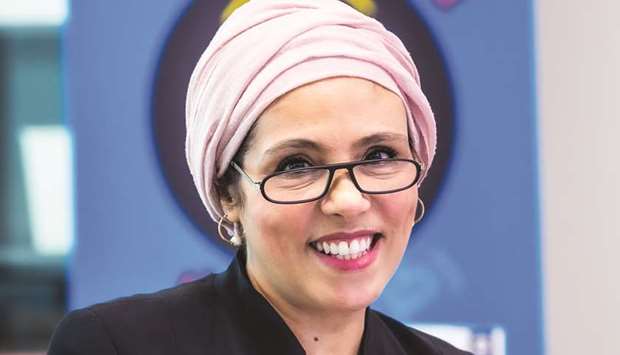Scientists from the Qatar Biomedical Research Institute (QBRI) and the Qatar Computing Research Institute (QCRI) at Hamad Bin Khalifa University (HBKU) have jointly published the first risk score to screen for pre-diabetes in the Middle East, where prevalence is one of the highest in the world.
The research team was led by Dr Abdelilah Arredouani, a scientist at the QBRI’s Diabetes Research Centre, and Dr Halima Bensmail, a principal scientist at the QCRI.
Using machine learning techniques, the researchers analysed the associations between pre-diabetes and data of approximately 8,000 participants from the Qatar Biobank (QBB), which included Qatari citizens and long-time residents.
The team developed a tool called PRISQ (Pre-diabetes Risk Score Qatar), which uses risk factors measured non-invasively instead of a blood test to screen for pre-diabetes.
PRISQ uses body mass index (BMI), waist circumference, age, gender, and systolic and diastolic blood pressure to calculate a score that indicates the risk of having pre-diabetes.
PRISQ can, therefore, easily be used in clinical or community settings by primary healthcare personnel and even by members of the public.
The tool will be available as a standalone webserver as well as an application that can be downloaded onto any smartphone.
Commenting on the outcome of the joint research, Dr Arredouani said: “Our multi-disciplinary collaboration with the QCRI has allowed us to make swift progress on developing the first tool of its kind in the Middle East and the first to be developed using data from the Qatari population.”
“PRISQ is set to become very important for the early detection of individuals with pre-diabetes and, ultimately, in curbing the diabetes epidemic in the region,” he said. “It is an affirmation of our shared commitment to tackling challenges that impact on the lives of people in Qatar and across the Middle East.”
Dr Bensmail said: “We are honoured to be engaged with our peers at the QBRI to advance research into pre-diabetes.
“Our collective efforts have generated a crucial solution for a problem that is endemic to the region, clearly showing how much more we can achieve collectively.
“It is our hope that this new cost-effective tool will help people to make the necessary lifestyle changes to delay or prevent type 2 diabetes.”
Pre-diabetes dramatically raises the risk of developing type 2 diabetes.
Indeed, every year, 5-10% of people with pre-diabetes develop type 2 diabetes.
Recent scientific evidence has demonstrated that the progression from pre-diabetes to type 2 diabetes can be prevented, or at least delayed, in individuals with pre-diabetes in response to intensive lifestyle intervention.
Those findings make the early identification of individuals with pre-diabetes particularly crucial and highlights PRISQ as a significant, highly cost-effective step toward curbing the type 2 diabetes epidemic sweeping the Middle East region.
The joint QBRI-QCRI study has been published in the Journal of Diabetes Investigation and can be accessed online at https://pubmed.ncbi.nlm.nih.gov/33075216/.

Dr Bensmail: It is our hope that this new cost-effective tool will help people to make the necessary lifestyle changes.
